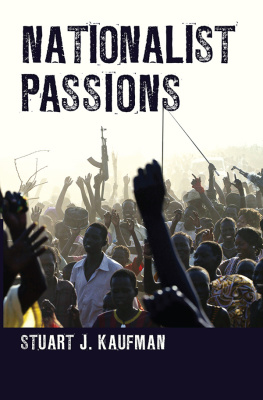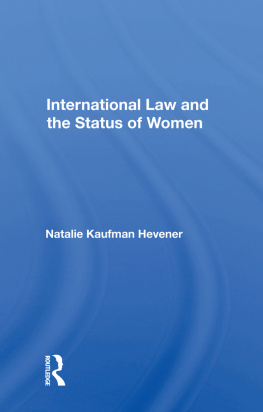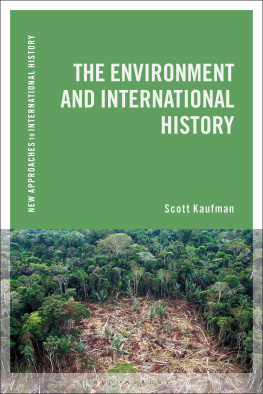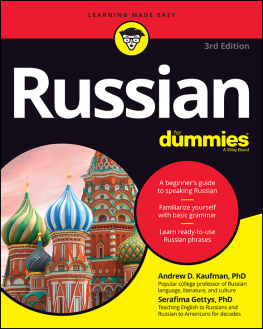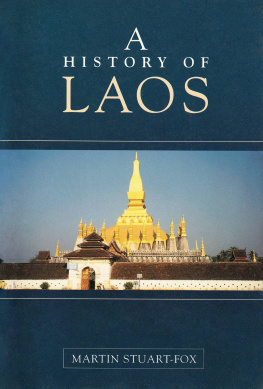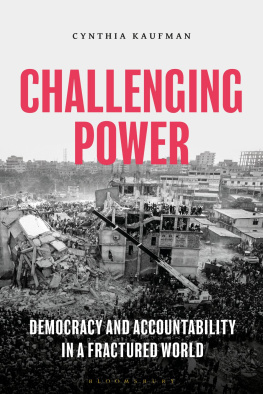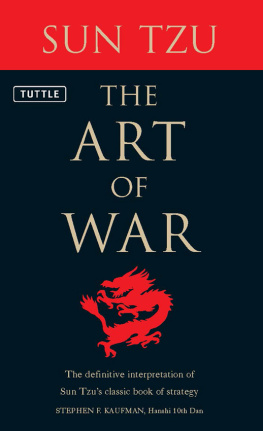Acknowledgments
The first things any scholar needs to research and write a book are time and money; for these essential commodities I thank the University of Delaware, which provided so much of both. Funding for this project came from the universitys Department of Political Science and International Relations, a General University Research grant, and a grant from the Center for International Studies. I also benefited from sabbatical leave and a course release generously granted by the university, which gave me additional time to research and write this book. An earlier version of chapter 2 was first published as Symbols, Frames and Violence: Studying Ethnic War in the Philippines, International Studies Quarterly 55, no. 4 (December 2011), pp. 93758. Some portions of chapters 3 and 4 also appeared previously in Symbolic Politics or Rational Choice? Testing Theories of Extreme Ethnic Violence, International Security 30, no. 4 (Spring 2006), pp. 4586.
In approaching this project, I have tried to be simultaneously ambitious in my goals and humble about my knowledge. In the latter quest I was aided by my keen realization of how little I knew about my cases before I began researching them. This book would not have been possible if not for the generous assistance of numerous genuine regional experts and residents of the areas I studied, for which I am deeply grateful. For the Philippines case, my colleague Alice Ba provided the essential first contacts that got me started. On the ground in Mindanao, Benny Bacani and Rufa Guiam provided invaluable assistance in helping me proceed. Assistance also came from Rommel Banlaoi, Hermann Kraft, Rudy Rodil, Sol Santos, and a number of local experts and participants who generously gave of their time to speak with me. Satoshi Machida, Wang Yu, and Dina Delias provided able help as research assistants for that case.
For help with my research in South Africa, my greatest thanks go to Hermann Giliomee, who went above and beyond the call of collegial duty in aiding me in this project and making possible whatever success I have achieved. I also thank the dozens of participants in South Africas transition process who agreed to be interviewed, including F. W. de Klerk, Barend du Plessis, Mac Maharaj, and others whose names I have kept confidential. The Human Sciences Research Council generously shared some of its invaluable survey data, the F. W. de Klerk Foundation was highly cooperative, and Maxi Schoeman kindly provided a home away from home at the University of Pretoria. Other scholarly colleagues who provided great help in South Africa include Stephen Ellis, Neville Alexander, Denis Beckett, Anthony Butler, Fanie Cloete, Andre du Toit, Pierre du Toit, Deon Geldenhuys, Roland Henwood, Anthea Jeffery, Koos Malan, Bob Mattes, Lawrence Schlemmer, Annette Seegers, Thula Simpson, A. J. Venter, and David Welsh. Andre Dumon was invaluable as research assistant and translator. Jeff Pieres helped me with hard-to-find information, and Brendan OLeary kindly read and provided detailed feedback on an early version, which he also arranged for me to present at a comparative politics symposium at the University of Pennsylvania. I thank those colleagues at Penn for their feedback as well.
My research in Tanzania got its initial boost from Gretchen Bauer and Aili Mari Tripp, who helped me enormously in getting started. Bruce Heilman was my invaluable first point of contact, and Jingu John Kiangu was superbly helpful as my research assistant; Kelvin Mathayo kindly translated articles from the Swahili-language press for this project. Assistance also came from Theodora Bali, Paul Bjerk, Jessica Mushi, Allen Rugambwa, and the Tanzanian Studies Association.
Back home, my wife Nita provided not only the love and support that kept me going but also the graphic design expertise that produced the maps, flowcharts, and elements of the cover art that grace this volume. My child, Sam, provided both useful feedback on the introduction and constant reminders about the other things that make life worth living. Ron Hassner and Marc Ross read the whole manuscript and provided detailed and immensely useful comments. Feedback on one or more chapters was also provided by Gretchen Bauer, Zoltan Buzas, Bob Denemark, Marie Desrosiers, Kara Ellerby, Phil Jones, Aaron Karnell, Chaim Kaufmann, Neophytos Loizides, Omar McDoom, Donald Rothchild, Stephen Saideman, and Crawford Young; Daniel Kinderman, David Wilson, and other members of the Department of Political Science and International Relations Faculty Research Seminar also provided useful comments. Sam Gaertner and other members of the Psychology Departments brownbag symposium on social psychology also provided valuable theoretical insights. Any errors that may be contained in this work are solely the responsibility of the author.
Introduction
Ethnic Relations and Symbolic Politics
Ethnic conflict is a plague of our time, at least partly to blame for most contemporary warfare.
Yet if most wars are at least partly ethnic, it is also true that most ethnic relationships are peaceful. Indeed, most countries are multiethnic, and most of them manage relations between ethnic groups relatively quietly. The aim of this book is to explain how both of these facts can be true at the same time. How does ethnic peace work? How can it be maintained? Why do ethnic relations sometimes become contentious? And what causes some ethnic relationships to descend into all-out war or even genocide?
The contrast between Sudan and Tanzania illustrates the puzzle. These two East African siblings gained independence within five years of each other, Sudan in 1956 and Tanzania in 1961, and at birth they shared many qualities. Both were among the largest countries in Africa by both area and population and were among the poorest countries in the world. Both were also highly diverse, each including over one hundred different ethnic groups speaking a wide variety of languages, further divided between Christians and Muslims. Both were led at independence by leaders determined to impose the most widely spoken language among each countrys Muslims (Arabic in Sudan, Swahili in Tanzania) as the national language for all. According to World Bank analyses, this set of traitslarge size, poverty, and linguistic and religious diversityput both countries at serious risk of political instability or civil war.
Yet despite these shared qualities, the two countries followed opposite paths from the beginning. Sudan suffered repeatedly from horrific ethnic violence, experiencing two civil wars between the Muslim north and the non-Muslim south: the first from 1962 to 1972 and the second, genocidal in scale, from 1983 to 2005. Just as that second war, estimated to have killed over two million people, was finally coming to an end, a third one started in the western region of Darfur, raising yet again the specter of a Sudanese genocide. South Sudan finally achieved independence in 2011, as a result of a peace deal with the Sudanese government, but within two years it too began experiencing internal ethnic violence.
Tanzania, in contrast, remained at peace, with hardly a hint of ethnic tensions on the Tanzanian mainland. While Sudanese politicians were rallying their supporters for war, Tanzanian politicians were seeking votes with promises to build roads, dig wells, and create jobs.
This book explains such contrasts: why some ethnically diverse countries, like Tanzania, feature constructive national politics focused on economic development and experience little ethnic tension while others, like Sudan, fall into the worst kind of ethnic wars. In trying to answer this question, I reach resolutely across the boundaries between social sciences for two reasons. First, there are no simple answers to questions like this. If I focused only on the issues of interest to economists or to sociologists, I would not get very far with my explanation. Second, while conceding the importance of psychological, cultural, sociological, and political

